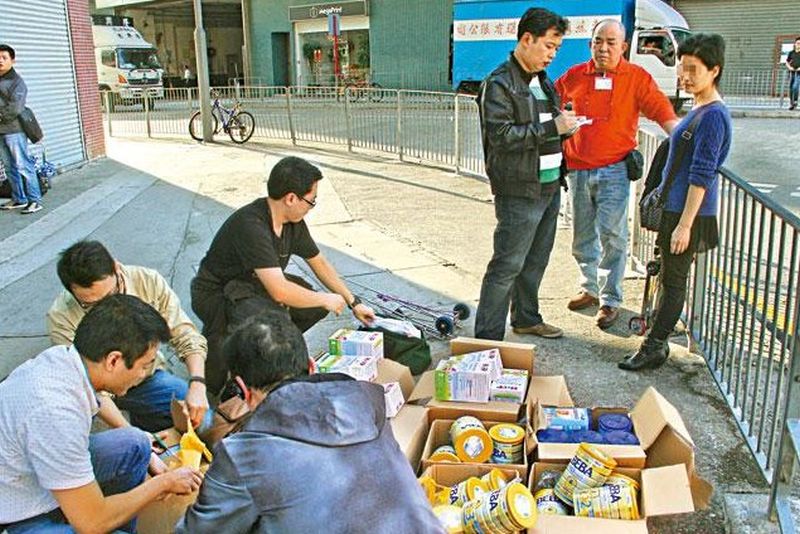China has announced that the import tax for three kinds of baby formula milk and baby diapers will be scrapped as of next Friday. The policy change forms part of new initiative by the Customs Tariff Commission of the State Council as it adjusts import taxes for 187 items.
The import tax for partially and fully hydrolyzed formula milk, amino acid formula milk and lactose-free formula milk is to be reduced from 20 per cent to zero. Tax on baby diapers is also to be reduced from 7.5 per cent to zero. China’s Finance Ministry said the round of cuts concentrates on products in short supply domestically: “It will be beneficial to enrich choices for domestic consumption to guide the upgrade of domestic supplies.”

District councillors and residents living in Hong Kong’s north district have long complained about parallel trading activity, whereby mainland or Hong Kong people transport large volumes of formula milk and baby diapers across the border for resale. The practice caused a boom in the number of pharmacies in the district.
Ronald Leung, convener of the North District Parallel Imports Concern Group, told HKFP that he believed the policy change would do little to curb parallel trading activity: “Only a few people bring diapers across the border, but I believe people won’t stop bringing formula milk.”
He also said the zero import tax applies only to special milk formulae: “Are these the ones being stockpiled? If not, the effect is zero.”
Counterfeit concerns
Leung said that, recently, parallel traders have shifted their interest to personal consumer products such as toothpaste, shower gel, cosmetics, masks, baby food, Chinese medicine oil and health pills, among other items.
According to the new regime, such products will still attract an import tax of between two to five per cent.
“China still has a problem of counterfeit medicine – as long as they still do not have confidence in buying goods in the mainland, they will still come to Hong Kong to buy goods – especially those living in Shenzhen, who can just come after one train stop. So I believe it won’t help the Sheung Shui area too much,” he said.
Leung added that parallel traders will also be interested in bringing whiskey and red wine across the border, since these items also had a huge cut in import tax.

In 2013, the government implemented a law to limit the volume of powdered formula taken out of the city to 1.8 kilograms in 24 hours. The move was a response to heated protests against an influx of parallel traders in the New Territories.
Chief Executive Carrie Lam suggested in her policy address last month that the government would review “the export control of powdered formulae” and explore “long-term measures for safeguarding the stability of the local supply of powdered formulae.”
But both pro-democracy and pro-Beijing camps have opposed such new policies.
Edward Lau of the Democratic Alliance for the Betterment and Progress of Hong Kong and Lam Cheuk-ting of the Democratic Party – lawmakers and district councillors in north district – both said parallel trading activities depended on the confidence mainland residents had in buying products in the mainland.
Lau said he will monitor how many prosecutions are made by the Customs and Excise Department when the new tax is implemented next month so as to decide whether to support scrapping limits on powdered formula taken out of the city.
Lam said the limit should not be scrapped because the mainland still has a counterfeiting problem.
